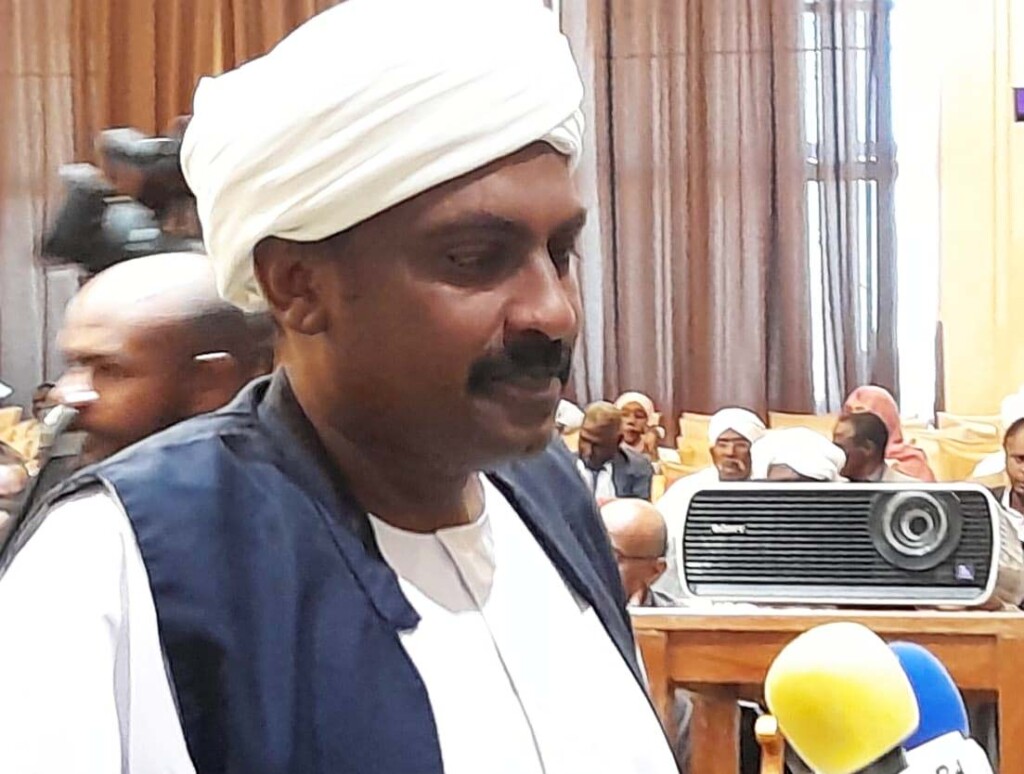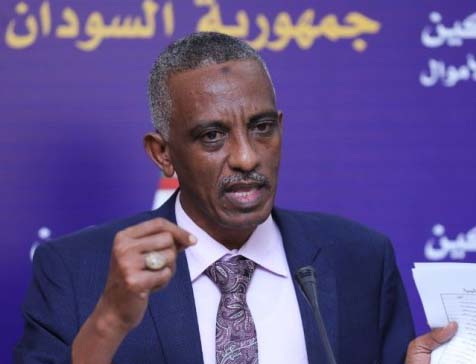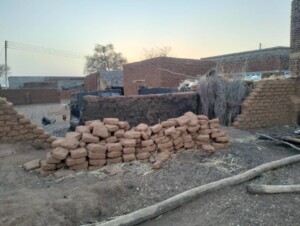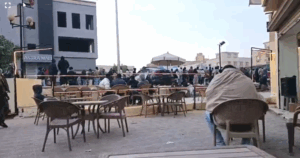El Faki: Sudan to form new anti-graft committee ‘without former members’

Co-chair of the now suspended ERC, Mohamed El Faki (Photo: SUNA)
An ‘empowerment removal roadmap conference’ was held in Khartoum yesterday morning to initiate the renewal of the empowerment removal process. A new Empowerment Removal Committee (ERC) will be formed in the future, but without members of the previous committee that was suspended after the 2021 military coup.
Co-chair of the now suspended ERC*, Mohamed El Faki, confirmed that the former members of the committee will not participate in the new one, which will be formed later.
In his speech during the opening of the ‘empowerment removal roadmap conference’ yesterday morning, El Faki said that “the conference aims to address shortcomings and failures of the former committee and to harmonise its work with the rest of the state institutions”.
El Faki, who was also member of the Sovereignty Council during the government of Abdallah Hamdok (2019-2021), said that the new committee will work under a full civilian government and “its working conditions will be better than the previous committee because it will not start from scratch”.
‘Sudan will not be stable unless justice and accountability are achieved…’ – Mohamed El Faki
The work of the ERC in 2020 and 2021 has been widely criticised for “being too assertive, not always following legal procedures, and making decisions too fast”. El Faki explained that the committee “suffered from a scarcity of funding and was therefore unable to attract experienced, first-class cadres”.
“Despite all the challenges, the committee was able to achieve a lot, which made the Sudanese street rally around the committee and protect it from political intervention,” he added.
El Faki concluded his speech by saying that “Sudan will not be stable unless justice and accountability are achieved, and this is what the Empowerment Removal Committee is doing.”
In an interview with Radio Dabanga, Economics Professor and member of Sudan’s Communist Party Sidgi Kaballo explained that, since the coup, military authorities have (re-)appointed a ‘second wave’ the Islamic Movement members and others affiliated with the former regime of dictator Omar Al Bashir in all service institutions, banks, and justice institutions. Kaballo described this as ‘re-empowerment’.
Recently, the 15-year-old daughter leading ERC member El Tayeb Yousef Osman was abducted and gang-raped on Friday. Fellow ERC member Salah Manaa tweeted that “the reason for the girl’s rape is her father’s work for the committee”.
Conference seats
Khaled Omar Yousef, leading member of the Forces for Freedom and Change-Central council (FFC-CC) and official spokesperson for the current political process that is to lead to a Final Agreement with the military junta, explained in press statements prior to the launch of the roadmap conference that “a broad societal base is needed for the Final Agreement”.
For this reason, the FFC-CC decided to allocate less than 40 per cent of the seats at the conference to the signatories to the Framework Agreement.
“Therefore, more than 60 per cent of the seats have been reserved for the civil, professional, and academic sectors, along with legal experts, religious and community leaders, and representatives of the security sector,” he said.
“The outcomes of the conference should reflect the largest social base possible, so that this process is characterised by inclusiveness and includes the opinions of the stakeholders.”
He explained that “all upcoming workshops on the issues of the Juba Peace Agreement, the Eastern Sudan Peace Protocol, justice and transitional justice, and security and military reform, will be dealt with in the same way as the empowerment removal conference, though considering that the issues are different in their specificity and the nature of their participants”.
‘No real reform’
Wajdi Saleh, a leading member of the Arab Socialist Ba’ath Party and a former chairperson of the Empowerment Removal Committee, described the roadmap conference as “a formality”. He said that “nothing will lead to real reform while the coup leaders are still in power”.
The Arab Socialist Ba’ath Party withdrew from the Forces for Freedom and Change alliance in December as they opposed the Framework Agreement with the military junta.
“The power is in the hands of the putschists, who dissolved the ERC and returned the money, property, and assets confiscated by the committee to the thieves [affiliates of the Al Bashir regime],” Saleh explained to Radio Dabanga.

Saleh himself was arrested by the military junta, faced significant legal challenges, and saw his home attacked since the military coup. He has been an outspoken opponent of the ousted Al Bashir regime.
“The reform will not really affect the military institution, “he said. “Any new vision will not provide for the required dismantling of the judicial institutions, but only reform them. These are two really different concepts.”
He said that “the final stage of the current political process after the signing of the Framework Agreement will not lead the country to the desired democratic transformation which are the goals of the revolution”.
“What is happening in the political scene is nothing but a legitimisation of the coup. The beneficiaries of the agreements with the putschists are parties that turned against the revolution.”
‘What is happening in the political scene is nothing but a legitimisation of the coup…’ – Wajdi Saleh
He emphasised that “our problem is not with the military, but with its leaders. The putschists’ position is tactical and aims to dismantle the forces of the living revolution. The Final Agreement will not lead the military to the barracks, nor will it lead to subjugating the military establishment to a new civilian government”.
Rejection
Saleh and his Ba’ath Party are not the only ones who are disillusioned by the current political process to reach a Final Agreement with the military junta.
The Communist Party of Sudan renewed its rejection of agreements with the military junta. “The political process does not reflect the aspirations of the people,” the party said in a statement on Monday.
A number of leaders of the displaced in South and Central Darfur also reject “the final phase of the political process”, as it “does not address the aspirations of the displaced”.
Ishag Mohamed Abdallah, Sheikh of Kalma camp for the displaced in South Darfur, told Radio Dabanga: “we are not a party to the current agreement and we have not been consulted”.
He said that the ongoing political process “underestimates the security situation of the displaced”.
A displaced community leader in Mershing, South Darfur, said that the Framework Agreement does not address the security situation of the displaced either, whilst highlighting that the displaced are unable to leave the camps in Mershing due to the continued violence and attacks.
El Shafee Abdallah, chairperson of the Darfur Displaced and Refugees Coordination, also said that the issues of the displaced and refugees are not addressed in the current political process.
He accused the FFC-CC of hijacking the revolution and not achieving its goals and condemned the heavy international and regional interference in the political process “in order to achieve the interests and agenda of other countries”.
Displaced have called the political process in Khartoum ‘elitist’.
* Empowerment (tamkin) is the term with which the ousted government of Omar Al Bashir supported its affiliates by granting them far-going privileges, including government functions, the setting-up of various companies, and tax exemptions. The committee’s full name is the Committee for Dismantling the June 30 1989 Regime, Removal of Empowerment and Corruption, and Recovering Public Funds. In the end of 2019, the government of Abdallah Hamdok established the Empowerment Removal Committee (ERC) with the aim to purge the country of the remnants of the Al Bashir regime. The work of the ERC was suspended, and a number of its members detained following the October 2021 military coup d’état.











 and then
and then